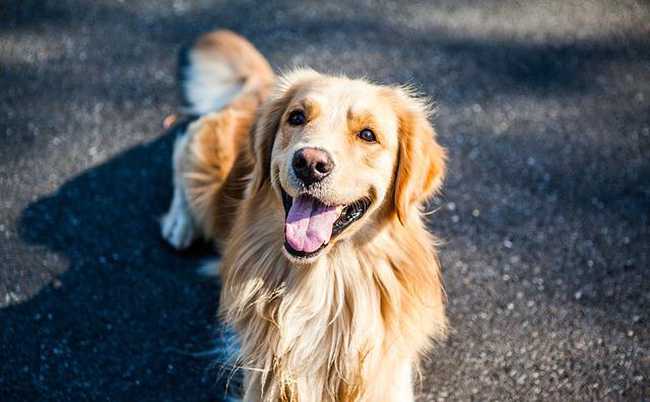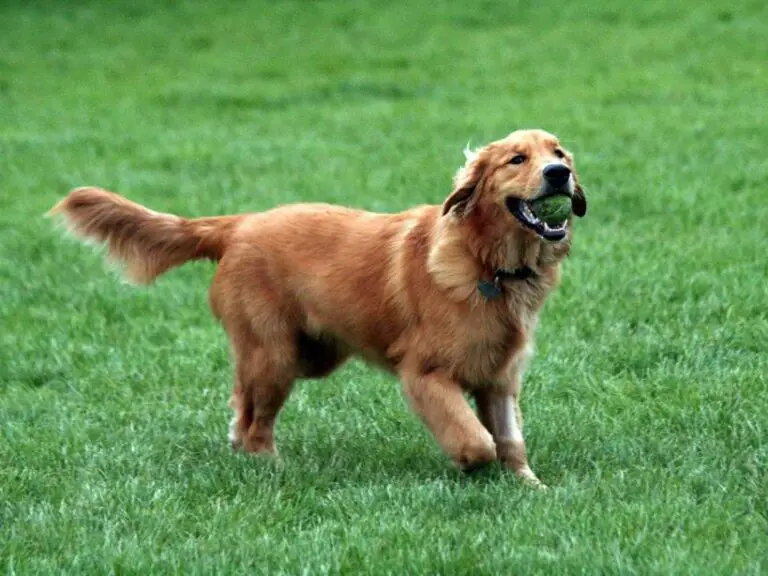How To Train Your Golden Retriever To Be A Well-Behaved Dog
Are you a new Golden Retriever owner struggling with training your furry companion? Look no further! As a proud owner of a well-behaved Golden Retriever, I’m excited to share my knowledge and experience on how to train your Golden Retriever to be a well-behaved dog.
Understanding your Golden Retriever’s personality and behavior is crucial to successful training. Whether you have a quirky or timid pup, it’s important to cater your approach to their unique traits. Basic obedience commands are a great starting point, but what about addressing behavioral problems with positive reinforcement?
In this article, I’ll provide tips and tricks for effective training sessions and how to maintain consistency in your training methods. Building a strong bond with your Golden is key to a successful training experience, and with continued training throughout their life, you can prepare for any situation, from specific environments to unexpected situations.
The benefits of a well-behaved Golden Retriever are endless, and training can be an enjoyable bonding experience for both you and your furry friend. However, some aspects of training may require the help of a professional. Stay tuned for insights on when to seek professional help.
Understanding Your Golden Retriever’s Personality and Behavior
Understanding your Golden Retriever’s personality and behavior is the first step towards effective training. Golden Retrievers are known for their friendly and social traits, making them the perfect family companion. They love attention, companionship, and lots of cuddles. These dogs are naturally enthusiastic and will do anything to please their owners, which makes them a great candidate for obedience training. However, just like any other breed, Golden Retrievers come with unique personality traits and behavioral tendencies that require a certain approach to training.
One of the most notable characteristics of a Golden Retriever is their love for the outdoors. These dogs were bred to retrieve game and have high energy levels, which means they need plenty of exercise and mental stimulation to keep them happy. Golden Retrievers are also known for their tendency to chew, particularly when they are bored or anxious. This makes it essential to provide them with plenty of toys and mental stimulation to keep destructive behavior at bay.
Another characteristic of Golden Retrievers is their eagerness to please their owners. They are easy to train, as they respond well to positive reinforcement techniques such as treats and praise. Golden Retrievers are also very sensitive and can become easily stressed or anxious if they sense that their owners are angry or upset. This means it’s important to use a gentle and patient approach when training your Golden Retriever.
In summary, understanding your Golden Retriever’s personality and behavior is crucial to effective training. By recognizing key characteristics such as their love for the outdoors, tendency to chew, eagerness to please, and sensitivity, you can tailor your training techniques to achieve the best results. With patience, consistency, and positive reinforcement, you can train your Golden Retriever to be a well-behaved and well-loved companion.

Starting with Basic Obedience Training Commands
When it comes to training your Golden Retriever, starting with basic obedience commands is a great way to begin. These commands help establish good communication between you and your dog and lay the foundation for more advanced training in the future.
The first commands to focus on are sit, stay, come, and heel. Teaching your dog to sit involves using treats and verbal cues to encourage them to sit and stay in that position until your release command. Similarly, stay involves teaching your dog to remain in a particular location until you signal for them to come to you.
Come is an essential command for your dog’s safety, and it involves teaching them to respond to your call and come to you promptly. And finally, heel teaches your dog to stay by your side and walk alongside you without pulling on the leash.
As you begin teaching these basic commands, be patient, and always use positive reinforcement techniques. Give your dog plenty of praise and treats to encourage them to repeat the behavior correctly.
Keep training sessions short and frequent, and aim to practice in different environments to help your dog generalize these commands beyond the training context. With consistent and positive training, your Golden Retriever will soon master these basic obedience commands, setting the stage for a well-behaved companion for life.
Addressing Behavioral Problems with Positive Reinforcement
Addressing Behavioral Problems with Positive Reinforcement is an effective way of training your Golden Retriever to be a well-behaved dog. Positive reinforcement involves rewarding your dog for good behavior, such as following basic obedience commands or exhibiting good manners. This technique helps your dog associate good behavior with positive outcomes, leading to better overall behavior.
Some common behavioral problems in Golden Retrievers include jumping on people, barking excessively, destructive chewing, and other unwanted behaviors. Rather than punishing your dog for these behaviors, which can worsen the problem or create new ones, you can use positive reinforcement to encourage them to modify their behavior.
For example, if your Golden Retriever has a habit of jumping on people, you can praise and reward them when they greet you calmly with all four paws on the ground. Conversely, if they jump on you, you can calmly turn away and withhold the reward until they display the desired behavior. Consistency is key, and over time, your dog will learn what is expected of them and will be more likely to exhibit good behavior.
Positive reinforcement training is a humane and effective way to address behavioral problems in Golden Retrievers while building a stronger bond with your furry friend. With time and patience, you can help your Golden Retriever become a well-behaved and happy companion.
Tips and Tricks for Effective Training Sessions
Training your Golden Retriever can be a fun and rewarding experience, but it takes effort and consistency to achieve the best results. Here are some tips and tricks for effective training sessions with your furry friend:
- Keep training sessions short – Golden Retrievers have a short attention span, so try to keep training sessions to 10-15 minutes at a time.
- Use positive reinforcement – Reward good behavior with treats, praise, and attention. This will motivate your Golden Retriever to repeat the desired behavior.
- Start with basic obedience commands – Begin with basic commands like “sit,” “stay,” “come,” and “heel.” These commands will create a foundation for more advanced training later on.
- Be patient – Patience is key when training your Golden Retriever. Don’t expect your dog to learn everything overnight. Celebrate small achievements, and keep working towards your goals.
- Consistency is crucial – Consistency is important for creating lasting habits. Be sure to use the same commands and rewards every time you train your Golden Retriever.
By following these tips and tricks, you can ensure that your training sessions with your Golden Retriever are effective and enjoyable. Remember to keep it fun and positive, and enjoy the journey of training your furry companion.
Keeping Consistency in Your Training Methods
Consistency is the key to successful dog training. If you want your golden retriever to be well-behaved, you need to keep your training methods consistent. Here’s how to do it:
- Create a routine: Establish a regular training schedule, and stick to it. Dogs thrive on routine, and it helps them understand what behavior is expected from them.
- Use the same commands: Make sure everyone in your household uses the same commands for the same behaviors. Inconsistency can confuse your golden retriever and slow down their progress.
- Reward good behavior: Consistently reward your golden retriever for good behavior, whether it’s with treats or verbal praise. This will reinforce their positive behaviors and make them more likely to repeat them.
- Be patient: Consistency requires patience. Remember that your golden retriever is an individual with their own unique learning style, so progress may take time.
- Be persistent: If you want your golden retriever to learn a new behavior or command, keep at it until they have mastered it. Don’t give up after a few attempts.
By keeping your training methods consistent, you’ll provide your golden retriever with clear expectations and set them up for success.
Building Strong Bonds with Your Golden Retriever
Building a strong bond with your Golden Retriever is crucial if you want to have a healthy and happy relationship. Here are a few tips to help foster a connection with your furry friend:
- Spend Quality Time Together: Dedicate time to play, snuggle, and experience new things together. Take your dog on walks, play catch or chase, and try out different activities your dog enjoys.
- Positive Reinforcement: Use positive reinforcement to encourage good behavior and show affection towards your dog. Give them treats, praise them with kind words, and offer plenty of belly rubs.
- Communication: Dogs are great at understanding body language and tone of voice. Learn how to communicate with your dog through consistency in your tone and gestures.
- Training: A well-trained dog makes for a better pet-owner relationship. Training your dog will not only improve your communication but also promote a feeling of safety and trust between you two.
With patience and understanding, you can build a lasting connection with your Golden Retriever. Remember that your furry friend is not just a pet, but also a companion for life.
Continuing Training and Reinforcement Throughout Their Life
Training your golden retriever should not be a one-time thing. Instead, it should be a continuous process throughout their life. This means that even after your dog has learned the basic obedience commands, you need to keep training and reinforcing their behavior.
Continuing your dog’s training and reinforcement will help them stay well-behaved and obedient. It will also keep them mentally stimulated and prevent boredom, which can lead to destructive behavior. Consistency is key when it comes to training your dog, and it’s important to reinforce what they’ve learned on a regular basis.
Here are some tips for continuing your dog’s training and reinforcement:
- Practice obedience commands daily
- Incorporate new commands and tricks to keep your dog challenged
- Reward good behavior with treats, praise, and affection
- Use positive reinforcement techniques to correct bad behavior
- Attend obedience classes or training sessions with your dog
- Stay patient and consistent with your training methods
Remember that training your golden retriever should be a fun and rewarding experience for both you and your dog. By continuing their training and reinforcement throughout their life, you can ensure that you have a well-behaved and happy furry companion.
Knowing When to Seek Professional Help for Training
While training your golden retriever can be a fun and rewarding experience, there may come a time when you need the help of a professional. Here are a few scenarios where seeking professional training help might be beneficial:
- You’re having difficulty managing your retriever’s behavioral issues, such as aggression, excessive barking, or separation anxiety.
- You aren’t making progress with your current training methods, and your retriever’s obedience levels have plateaued.
- Your retriever is showing signs of fear or anxiety, and you’re not sure how to address them.
- You want to teach your retriever skills that require specialized knowledge, like therapy or service dog training.
In these cases, working with a professional dog trainer can help you develop a personalized training plan that addresses your specific concerns and goals. By seeking expert advice, you can improve your training techniques, address behavior challenges in a positive, effective way, and ultimately, build a stronger bond with your beloved golden retriever.
Preparing for Specific Situations and Environments
Your Golden Retriever will encounter various situations and environments during their lifetime, and it’s essential to prepare them for these experiences. This will help ensure they are well-behaved and comfortable in different settings. Here are some tips to help you prepare your furry friend for specific situations and environments:
- Socialization: Introduce your Golden Retriever to different people, animals, and environments as early as possible. This will help them develop social skills and adapt to new situations.
- Training: Teach your Golden Retriever basic commands, such as “stay” and “come,” and practice them in various environments. This will help them listen to your commands and behave appropriately in different settings.
- Exposure: Expose your Golden Retriever to different sounds, smells, textures, and situations they may encounter, such as car rides, busy public places, or other dogs. This will help them learn how to handle these situations calmly.
- Supervision: Supervise your Golden Retriever in new environments and situations, especially if you are unsure of how they will behave. This will help prevent any accidents or unwanted behaviors.
By preparing your Golden Retriever for specific situations and environments, you can ensure they are well-behaved and confident in any situation. Remember to be patient and consistent with your training, as it takes time for your furry friend to learn and adapt to new experiences.

Benefits of a Well-Behaved Golden Retriever and Enjoying Your Time Together
A well-behaved Golden Retriever brings many benefits to your life. By training your furry friend, you will enjoy the following perks:
- Stress reduction: Walking, playing or cuddling with a well-behaved Golden Retriever can soothe your nerves and decrease anxiety levels.
- Enhanced safety: A trained Golden Retriever is less likely to engage in destructive and dangerous behaviors such as biting, digging, jumping or escaping. This means you can feel more secure when your dog is around children or other animals.
- More outdoor activities: You can take your furry friend with you to more places and activities, such as hiking, swimming, picnicking or traveling. A well-trained dog is usually more welcomed in public spaces and outdoor events.
- Improved social life: A well-behaved Golden Retriever can make you more approachable and friendly, as people often love to interact with friendly and obedient dogs. This can lead to new friendships and social experiences.
- Stronger bond: Training your dog can promote a deeper connection and loyalty between you two. By spending quality time together, you will understand each other better and create lifelong memories.
Investing time and effort in training your Golden Retriever will pay off in many ways, and ultimately lead to a happy and enriched life for both of you.
Conclusion
Congratulations, you are now equipped with the knowledge and tools to train your Golden Retriever to be a well-behaved dog. Remember, every dog has their own unique personality and behavior, so it’s essential to understand their needs.
Starting with basic obedience training commands and addressing any behavioral problems with positive reinforcement is a great foundation for effective training sessions. Consistency is key, so be sure to stay committed and patient with your furry friend.
Be sure to build a strong bond with your Golden Retriever by spending quality time together and continuing training and reinforcement throughout their lives. However, there may be situations where seeking professional help is necessary.
A well-trained Golden Retriever will bring numerous benefits and enhance your relationship with them. So, prepare for specific situations and environments to ensure an enjoyable experience for both you and your furry pal.
In conclusion, training your Golden Retriever can be a fun and rewarding experience with these helpful tips and tricks. Remember to stay positive, consistent, and patient, and you will have a loyal and well-behaved companion for years to come.



